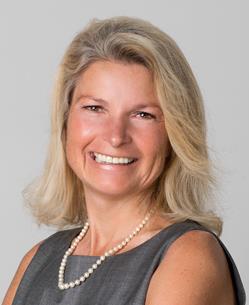by Celia Llopis-Jepsen and Meg Wingerter, Kansas News Service
Gov. Sam Brownback on Thursday signed into law the state’s new school funding formula, which increases aid to schools by $284 million within two years.
In signing Senate Bill 19 into law, Brownback said it directs “more dollars into the classroom by limiting bond and interest aid, encouraging responsible financial stewardship at the local level.”
The fate of the new K-12 formula is now in the hands of the Kansas Supreme Court. The justices found the state’s current funding system unconstitutional in the ongoing Gannon v. Kansas school finance lawsuit, in which dozens of school districts are suing the state over funding levels.
John Robb, an attorney for the districts, said he expects the court will move quickly to hear oral arguments. He predicted the court could handle the matter in a matter of weeks.
Concealed carry exemptions
Brownback’s other actions Thursday on bills from the Legislature were a mixed bag for the mental health community, as he allowed public health facilities to continue to ban guns but denied some programs additional funds from the state lottery.
The governor allowed the concealed carry bill to become law without his signature. House Bill 2278 exempts publicly owned mental health centers, medical clinics and hospitals — including the University of Kansas Health System — from the state’s concealed carry law.
Existing law would have required publicly owned buildings to add metal detectors and armed guards or allow employees and visitors to bring in guns starting July 1. State officials estimated it would have cost $12 million annually to add metal detectors and guards at the four state hospitals, and KU Health System estimated it would spend more than $1 million each year to comply.
Brownback said he wasn’t pleased with the bill but would allow it to become law because it exempted state psychiatric hospitals, a provision that he said has bipartisan support.
“This bill as passed allows for a restriction on the Second Amendment rights of Kansans without ensuring adequate safety measures are taken to protect those who visit or work in our public hospitals,” Brownback said in a written message to the Legislature. “Kansans should not be forced to subject themselves to greater risk while giving up their right to protect themselves.”
Some Republicans, including Senate Majority Leader Jim Denning, said they thought it wasn’t plausible to install security in medical facilities, and that KU Health System would be at a competitive disadvantage compared to privately owned hospitals.
Dave Elsbury is the CEO of Kanza Mental Health and Guidance Center in Hiawatha. He said the concealed carry law wouldn’t have affected the center’s operations, because most of its facilities are in privately owned buildings, but he is relieved the state psychiatric hospitals won’t have to allow guns.
Allowing guns in psychiatric hospitals would be dangerous, Elsbury said, and the hospitals can’t afford to spend millions on security. They already face difficulties with paying enough to retain capable staff, he said.
“My concern was if that money was spent, it would take away from direct patient care,” he said.
No lottery vending machines
Brownback vetoed another mental health-related bill, House Bill 2313, that would have allowed lottery ticket vending machines, with the proceeds split between mental health crisis centers and clubhouses.
Kansas has three crisis centers, in Kansas City, Kan., Wichita and Topeka. They treat patients with mental health or substance abuse disorders for up to three days, with the goal of stabilizing them and connecting them to longer-term treatment. Clubhouses assist people with mental illnesses in developing work and relationship skills.
In a statement announcing his veto, Brownback didn’t address the mental health provisions of the bill but focused on the disproportionate impact of the lottery on low-income people.
“Rather than investing limited resources in games of chance, our goal is to help low-income Kansans find a path to self-reliance and independence through education, work and savings,” his veto message said. “The state should not encourage behavior that undermines our efforts to encourage upward economic mobility and long-term financial security and thrift.”
Last year, the lottery contributed $42.4 million to state economic development programs and $28.2 million to the state general fund.
The bill passed with veto-proof majorities in both houses, but it isn’t clear if legislative leadership will attempt an override when lawmakers return for sine die on June 26.
Other bills
On Thursday the governor also signed into law:
• House Bill 2079, which increases the privilege fee that health insurance companies pay on certain types of plans. The fee funds will help replace the 4 percent cuts to Medicaid providers that Brownback made in 2016, with extra funds going to community mental health centers and the newborn screening program.
• House Bill 2230, which tweaks penalties for selling cigarettes without paying required taxes. State officials said failure to pass the bill could have jeopardized Kansas’ share of the tobacco master settlement, which pays for children’s programs.
Meg Wingerter and Celia Llopis-Jepsen are reporters for the Kansas News Service, a collaboration of KCUR, Kansas Public Radio and KMUW covering health, education and politics. Kansas News Service stories and photos may be republished at no cost with proper attribution and a link back to kcur.org.
See more at http://kcur.org/post/brownback-signs-school-funding-bill-allows-gun-law-exemption-public-hospitals.

